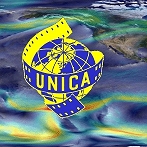
GENERAL ASSEMBLY, Blansko (CZE)
7th September 2018
Page 3
Committee Members Attending
Jeanne Glass (Vice-President)
Bernhard Lindner (Vice-President)
Jacqueline Pante (Secretary General)
Thomas Kräuchi (Treasurer)
Advisers:
Tatyana Alahverdzhieva
Zeljko Balog
Mitze Chapovski
Wolfgang Freier
Franka Stas
Also Present
Jaroslav Kolcava (President of the Czech UNICA Committee)
Tatyana Alahverdzhieva (Friends of UNICA)
Wolfgang Freier (UNICA Patronage)
Serge Michel (IFTC Liaison)
Odilon Dubost (Translations)
Romy Van Krieken (Translations)
Stefan Eich (Translations)
Hana Staňková (Translations)
Not Present
Paweł Łęski (Adviser)
Rolf Mandolesi (Adviser)
Members Present
Austria
Belgium
Bulgaria
Croatia
Czech Republic
Estonia
Finland
France
Germany
Italy
Liechtenstein
Luxembourg
Macedonia
Netherlands
Romania
Russia
Slovakia
South Korea
Spain
Switzerland
United Kingdom
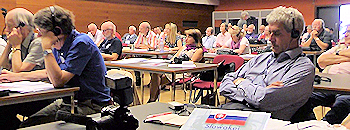
21. Discussion and vote about the proposals submitted by the members.
Proposals submitted by VÖFA
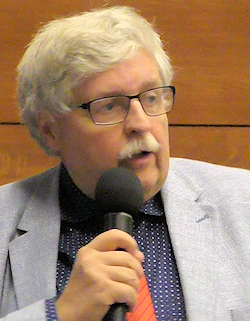 Austria
Georg Schörner - The most important people at the UNICA
congress are the authors, who deserve the biggest respect. Last year
(2017) in Dortmund, was decided to withdraw, without any further
discussion, a certain amount of films. Although the GA has never
voted upon, the committee decided according to the new article,
which allows the committee to adapt or change regulations. Hence the
suggestion for the 2018 competition is that roughly 75% of the films
are not discussed and so to say thrown away. This is disrespectful
towards the authors. Luckily, we have democratic rules, hence there
must be transparency in decisions. It seems that UNICA wants to get
rid of this transparency, by taking the decision to simply throw
away, in a hidden process, 75% of the films. The excluded authors
will not even receive a justification for that. Earlier we had this
with the 40% rule, which did not work either. And now we want to
introduce the 25% rule. For this reason, VÖFA has submitted,
according to the rules, the proposal:
Austria
Georg Schörner - The most important people at the UNICA
congress are the authors, who deserve the biggest respect. Last year
(2017) in Dortmund, was decided to withdraw, without any further
discussion, a certain amount of films. Although the GA has never
voted upon, the committee decided according to the new article,
which allows the committee to adapt or change regulations. Hence the
suggestion for the 2018 competition is that roughly 75% of the films
are not discussed and so to say thrown away. This is disrespectful
towards the authors. Luckily, we have democratic rules, hence there
must be transparency in decisions. It seems that UNICA wants to get
rid of this transparency, by taking the decision to simply throw
away, in a hidden process, 75% of the films. The excluded authors
will not even receive a justification for that. Earlier we had this
with the 40% rule, which did not work either. And now we want to
introduce the 25% rule. For this reason, VÖFA has submitted,
according to the rules, the proposal:
“A secret preliminary decision that only a certain number of films (for example 25%) may be included in the final vote is not permitted.”
We would like to invite all delegates to vote for this, especially those who want to keep decisions transparent and to respect the authors.
President Dave Watterson asks if there are more comments on the proposal before voting.
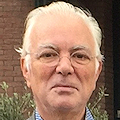 Netherlands - Kees Tervoort wants to
know if this decision has effectively been taken. If so, could you
explain the reason why this decision has been taken.
Netherlands - Kees Tervoort wants to
know if this decision has effectively been taken. If so, could you
explain the reason why this decision has been taken.
The president Dave Watterson clarifies that there is no decision to limit the number of awards given. The instruction to the jury is that they can give as many diplomas of honour as they wish. The suggestion is to select 35-40% of them to come forward to the Saturday morning voting. So that already leaves roughly 40 films, the jury voted upon, which takes about two hours. The decision was taken at the committee meeting in Zürich in November 2017, obeying the suggestion collected from Dortmund, to shorten the Saturday morning session.
Kees Tervoort would like to know if there is a clear limit to the medals awarded. Jacqueline Pante and Dave Watterson answer no, which is OK for the Dutch Federation. In judging films, the quality must be in the forefront and not the quantity.
 Germany - Marcus Siebler. Discussion
about awards is an ongoing discussion within our federation too. We
found a way to adapt this, as we came to the conclusion that too
many awards can devalue the competition. Therefore, we disagree with
VÖFA’s proposal, however I think that the mention of percentage
creates discomfort. I do agree with the Dutch federation, that
quality goes before quantity. The percentage irritates. An
alternative could be to indicate an indicative number.
Germany - Marcus Siebler. Discussion
about awards is an ongoing discussion within our federation too. We
found a way to adapt this, as we came to the conclusion that too
many awards can devalue the competition. Therefore, we disagree with
VÖFA’s proposal, however I think that the mention of percentage
creates discomfort. I do agree with the Dutch federation, that
quality goes before quantity. The percentage irritates. An
alternative could be to indicate an indicative number.
 Lichtenstein
- Rolf Leuenberger. I totally respect VÖFA opinions. It’s
a matter of views: bottle half full or half empty. This year’s jury
works. In the past the not so valuable films have been pushed away,
so to say. This year each jury member indicates which film he or she
wants to keep. At the end there is a clear statistic based on the
voting agreed within the jury. All the votes are summarised and the
jury decides in which direction to move, rather to right (4 to 5
votes) or the left (2- 3 votes). Currently, considering the 25%
mark, it would be on 5, 4 or 3 votes for a film, according to the
jury.
Lichtenstein
- Rolf Leuenberger. I totally respect VÖFA opinions. It’s
a matter of views: bottle half full or half empty. This year’s jury
works. In the past the not so valuable films have been pushed away,
so to say. This year each jury member indicates which film he or she
wants to keep. At the end there is a clear statistic based on the
voting agreed within the jury. All the votes are summarised and the
jury decides in which direction to move, rather to right (4 to 5
votes) or the left (2- 3 votes). Currently, considering the 25%
mark, it would be on 5, 4 or 3 votes for a film, according to the
jury.
President Dave Watterson asks Dr. Schörner if it is a question of percentage or should all the films in competition be admitted to the final discussion and voting session?
Austria - Georg Schörner. We were really shocked
about the fact that the 25% mark is written, as shown on page 4 in
the report of the Secretary General. The report clearly states that
the jury indication is clearly stated, that the jury can select 25%
(+/-5%), ergo maximum 30%, but it could be only 20% too. The
President spoke about 40 films. In that case a film, in spite of the
fact that the committee said that there is no limit on the medals,
but if only 40 films reach the final discussion and voting, a film
will achieve only a diploma of honour, whereas roughly 90 films
receive only a participation diploma. This a huge number to us and
the author does not know why. If the 40% did not work, why should
the 20-25% work and the authors will be angry and sad. Possibly not
participate anymore. I think it is a disregard of the authors.
The President reminds that there is no limit to the diplomas of honour. The question I asked is not really answered. I suspect that there is more than just the question of the percentage.
Germany - Marcus Siebler. I understand all this discussion and passion. I represent BDFA this year and I participate as an author. There are more than 2000 filmmaker in BDFA, therefore I can only say that it is an honour to reach UNICA, this is already a reward. At BDFA only 5 out of 2000 reach UNICA. Participating is already a win, if not we would devalue our own competition.
The President reminds the meeting that the national organisation enters the films and not the author directly.
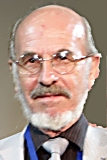 Switzerland - Fred Graber. I am one
of the old ones. I had the honour to be three times in the jury,
once with Georg Schörner. I nearly gained a gold medal. I am close
to Georg, however UNICA should not take longer than 7 days. The
Swiss are rational. The final discussion and voting have proven to
be effective with roughly 40 films. Should this take longer I might
leave before the end.
Switzerland - Fred Graber. I am one
of the old ones. I had the honour to be three times in the jury,
once with Georg Schörner. I nearly gained a gold medal. I am close
to Georg, however UNICA should not take longer than 7 days. The
Swiss are rational. The final discussion and voting have proven to
be effective with roughly 40 films. Should this take longer I might
leave before the end.
 Belgium - Franz Bardiaux if there
are stricter regulations, the risk is that really few films have a
chance to gain a medal.
Belgium - Franz Bardiaux if there
are stricter regulations, the risk is that really few films have a
chance to gain a medal.
The President reminds the meeting that all the films are judged and they are all voted on. The distinction is that some are voted in public.
Italy - Jacqueline Pante. UNICA is the masterclass for the amateur filmmaker. They have been selected by the national organisations. It does not make sense to award all the films. We should keep the spirit of competition among the filmmakers. We decided like this, because during the week the films are discussed in public, and in spite of having fewer jury members. An additional selection is made for the final voting. It should be much more challenging if there is smaller number of medals given, rather than 50 or more medals. This means higher suspense and more joy for the author.
Netherlands - Kees Tervoort. I understand that there is a difference between discussing, voting and awarding medals. Only those films selected for the discussion will have a chance to get a medal. All those which are not voted will never get a medal.
Germany - Bernhard Lindner. I understand that it not the matter to have each film discussed. It is very much about the transparency of the jury decision process. The author should be able to trace back the voting about his/her film and be put in the position to understand jury’s decisions. I would suggest to make the jury grid sheet available to the audience.
Lichtenstein - Rolf Leuenberger. I agree with Georg in terms of the importance of the authors. I learned from a VÖFA competition and introduced a minute time to give him/her the chance to speak about the film with the jury present. The author can listen to what the jury says about his/her film. Each jury member can choose his/her preferred film to discuss.
Austria - Georg Schörner. After the Dortmund experience we did submit an immediate protest. The committee had more than a year’s time to find new ways for this GA. As a national organisation we have heavy disadvantages, as we need to make the proposal 5 months before. The committee can present new proposals just today as we have heard. We are not going to comment on the proposal, as we do not like to do “Murks” (German slang for “murder/kill”), which is something that needs to be sorted out in a hurry. The Dutch delegate is right, not all the films have the same chance to gain a medal, in spite of the jury’s list. I am not in favour of a quick rule adaptation. Nothing would change for the authors. The committee did not fulfil its tasks, had only taken two decisions one in Dortmund and reiterated it in Zürich. Dear delegates decide or take the consequences of many disappointed filmmakers.
Italy - Jacqueline Pante. Georg liked very much the definition world competition. If we consider an award for all the authors, it will no longer be a competition, just a film show.
Netherlands - Kees Tervoort. As I have been in several discussions, I feel a jury should not have a limit to the number of the films to discuss. The jury must be free to decide. I do not want to have limits.
President. Would this be OK for the VÖFA. The number of films to discuss and vote for will remain solely the decision of the jury.
Voting: 17 in favour – 7 abstaining